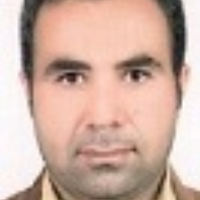Genome-wide association study for agronomic traits in spring bread wheat under different water conditions
The main goal of genome-wide association study (GWAS) is to identify genes associated with a specific trait. In this mapping method, researchers compare the whole genomic DNA sequence of people in the community to find single nucleotide differences between them. Identifying and mapping effective genes in response to drought stress, in addition to understanding the molecular and physiological mechanisms, can provide breeders with a better understanding of the genetic structure of population and the genetic control of stress and it’s breeding in the studied population. In this experiment, the mapping genes controlling important agronomic traits of bread wheat under two non-stress and drought stress conditions using genome wide association analysis method was performed. The objective of the experiment was to analyze QTLs related to the response to water deficit and to identify markers related to some important and effective traits in bread wheat.
The plant materials of this experiment were 121 spring bread wheat genotypes, including 111 lines obtained from local spring bread wheat varieties originating from 28 countries from five different continents and 10 spring bread wheat genotypes from Iran and Pakistan, which were evaluated under two non-stress and water deficit stress conditions in the field. Genotyping for the samples was done using SNP markers (15 K SNP array) at TraitGenetic Company in Germany, and each genotype was evaluated using a set of SNPs. To determine the population structure, 147 SNP markers with no missing data and with suitable distribution on 21 homologous chromosome pairs of bread wheat (seven markers per chromosome) were used. To determine the possible sub-populations and studying the population structure, Bayesian method and Structure software V 2.3.4 were used, and then the average fixation index (Fst) and membership matrix (Q) were calculated with the same software. Genome-wide association analysis with the general linear model (Q+PCA) method was used to identify the markers related to the studied traits under non-stress and drought stress conditions with average data in TASSEL 5.0 software.
The results of analysis of variance showed that there was an acceptable genetic diversity in terms of all the studied traits between the genotypes and reaction of the genotypes to water deficit stress was different. Based on genome-wide association mapping, in total, 511 and 469 significant marker-trait relationships were identified under non-stress and water deficit stress conditions, respectively. The most significant marker-trait association under water deficit stress was revealed for plant height, flag leaf area, peduncle length, and spike yield on chromosomes 1A, 2A, 3B, and 2A, respectively. Also, five SNP markers at positions of 113.30, 25.02, 13.90, 43.10, and 71.97 cM on chromosomes 2A, 2A, 5A, 6A, and 6B, respectively, showed the highest significant associations with flag leaf length and area, plant height, peduncle length, and spike yield under water deficit stress conditions, respectively. Multi-trait loci were also identified on chromosome 2A for flag leaf length, width and area, plant height and spike yield under water stress conditions. Finally, 21, 12, 14, 44, 92 and 14 significant marker-trait associations (QTLs) were found for flag leaf length, width and area, plant height, peduncle length and spike yield under water deficit stress conditions, respectively, using genome-wide association study.
The results of this study provided valuable information on the genetic basis of the studied traits under water deficit stress conditions, which can be used in bread wheat breeding programs, including marker assisted selection (MAS).
General Linear Model , Genome , Marker , QTL , SNP
- حق عضویت دریافتی صرف حمایت از نشریات عضو و نگهداری، تکمیل و توسعه مگیران میشود.
- پرداخت حق اشتراک و دانلود مقالات اجازه بازنشر آن در سایر رسانههای چاپی و دیجیتال را به کاربر نمیدهد.



